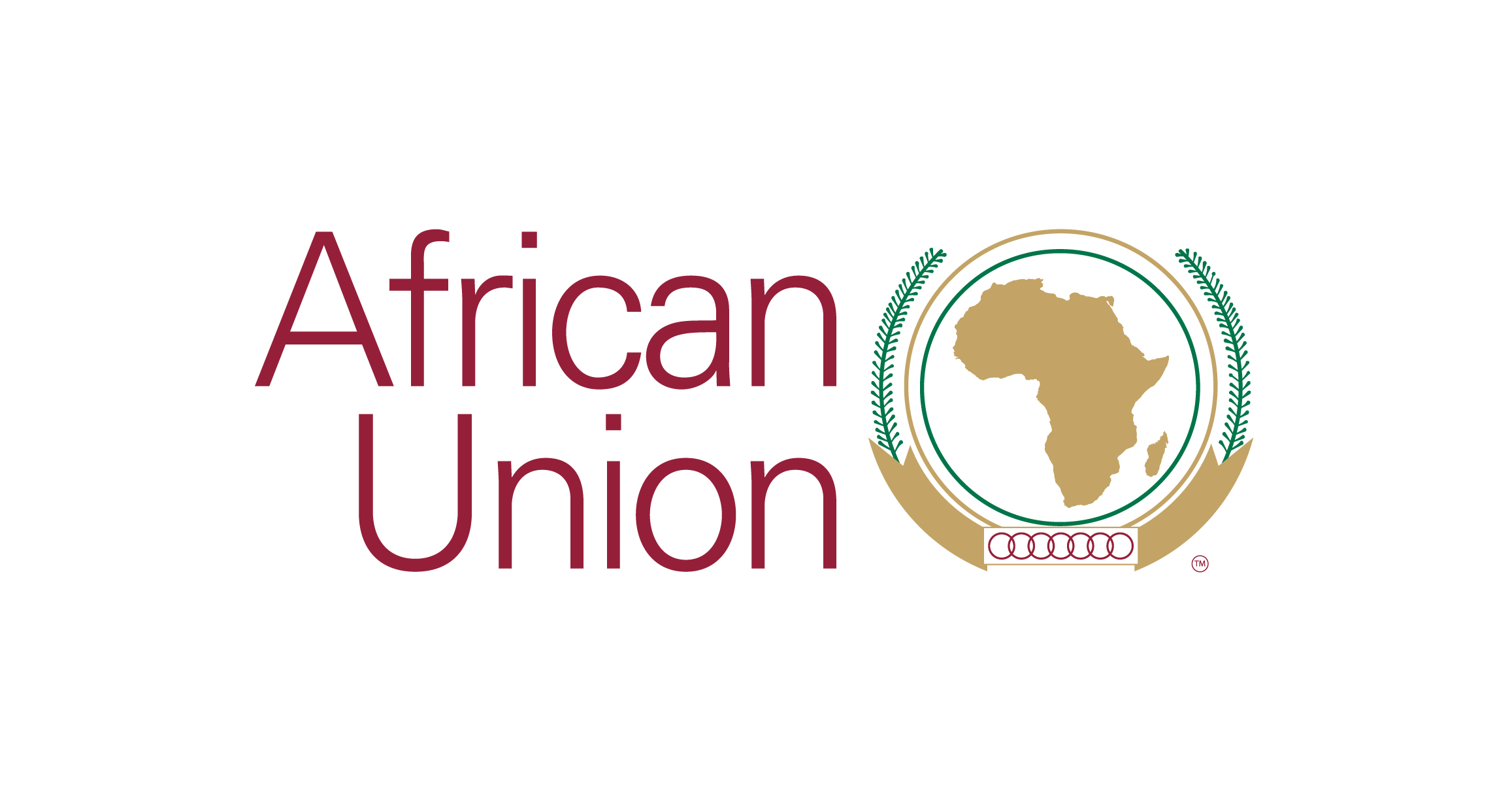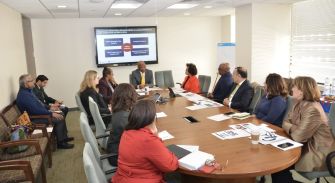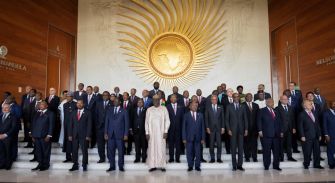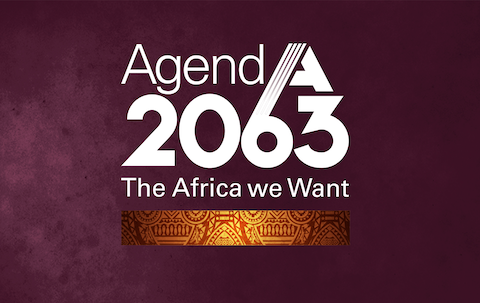Introduction
The AU Constitutive Act, in Article 4(c), calls for the “participation of the African peoples in the activities of the Union.” Additionally, the Agenda 2063 Framework Document underscores the importance of ownership by all stakeholders across the continent, emphasizing full participation, particularly of women and youth, to achieve the Africa We Want. The African Union (AU) Heads of State and Government adopted Agenda 2063 during the 50th Anniversary Solemn Declaration in May 2013 as a long-term transformative development strategy.
Agenda 2063 has seven aspirations and 20 goals. With the conclusion of its First Ten-Year Implementation Plan (2014-2023), monitoring and evaluation processes have highlighted the critical role of citizen leadership, ownership, inclusion, and empowerment as prerequisites for its success. These learnings have informed the recommendations for the Second Ten-Year Implementation Plan, which stress the need for effective stakeholder participation in the conception, design, implementation, monitoring, and evaluation of Agenda 2063 to ensure ownership and accountability.
Agenda 2063 emphasizes meaningful engagement with women, girls, youth, marginalized, and vulnerable groups in policy and development processes. Its core theory of change assumes that empowered citizens, responsive civil societies, private sector engagement, academia, and active parliaments are crucial to steering Africa’s social and economic transformation.
Alignment with the Agenda 2063 and 1 Million Next Level initiative
The STC-YCS4 recommended that the 1 Million Next Level Initiative (1mNL) and its action plan succeed the African Plan of Action for Youth Empowerment (APAYE) 2019–2023 as the framework for Youth Empowerment 2024–2030. This initiative, as a multi-stakeholder partnership involving the public sector, private sector, and youth, calls for collective efforts to provide opportunities for young people as partners and decision-makers.
The African Union Commission’s (AUC) 1 Million Next Level initiative aims to catalyze action for youth development across Africa by providing young Africans with opportunities in Education, Employment, Entrepreneurship, Engagement, and Health and Well-being. Recognizing that youth are Africa's most valuable asset and pivotal to its development, this initiative seeks to enhance their potential by connecting them with AU frameworks and subject matter experts for capacity development at scale.
The 1 Million Next Level initiative was conceived as a movement to be implemented through a public-private and youth partnership. Among other things recognizing young people and youth organizations as a force for change.
One of the key principles of the 1 Million Next Level initiative calls for placing young people at the center of activities, acknowledging their diverse needs and that one-size fit all approach will not work.
The Citizen Engagement and Capacity Strengthening Programme under the 1mNL Initiative is designed to strengthen the capacity of youth organizations working within the 4Es + H framework. It will bring together youth networks and organizations to:
Identify capacity gaps through a structured Needs Assessment Tool.
Provide tailored support and training to address specific challenges and build skills.
Foster cross-learning and collaboration among youth organizations working across different sectors. Equip youth organizations to influence policy and engage with decision-makers effectively.
The programme will adopt a targeted and flexible approach:
- Needs Assessment: A comprehensive tool will identify specific gaps in organizational capacity, technical skills, policy engagement, and resource mobilization.
- Tailored Capacity Building: Workshops and training sessions will be designed based on the identified gaps, ensuring that the interventions are context-specific and aligned with the diverse needs of youth organizations.
- Cross-Cutting Sessions: While each youth organization will receive targeted support, joint sessions will address common themes such as gender equality, digital transformation, and environmental sustainability.
This approach ensures that youth organizations are not just recipients of support but active contributors in designing and implementing solutions, in line with the broader objectives of the 1 Million Next Level Initiative. The programme will serve as a catalyst for building a stronger, more capable, and better-connected youth ecosystem across Africa.
Enhancing Gender and Youth Mainstreaming
It is the expectation that over 100,000 AU citizens will be engaged through various digitally supported participation, especially through the Citizen Engagement Platform, opportunities on frameworks and programmes of the AU Digital Agenda and Agenda 2063, including 40% AU citizens working on programmes or policies on gender equality. This effort seeks to promote inclusive and meaningful engagement with a strong focus on gender equality and youth empowerment under the framework of the 1 Million Next Level Initiative (1mNL). At least 40% of participants in these engagement opportunities will be women and girls, ensuring that their voices are reflected in the design and implementation of AU programmes and policies. This will increase the participation of young women and marginalized groups in AU decision-making and policy implementation.
Rationale
The AUC recognizes the centrality of youth in achieving the aspirations of Agenda 2063. Aspiration 6 of Agenda 2063 affirms that “The Africa We Want” is people-driven, relying on the potential of African citizens, especially its youth and women, and caring for children. Complemented by the African Youth Charter and the Roadmap on Harnessing the Demographic Dividend through Investments in Youth, Agenda 2063 and its youth-centric frameworks reflect the AU’s prioritization of youth development.
Despite these efforts, there is a significant gap in citizen participation and awareness of these frameworks, leading to limited ownership, implementation, and engagement of young people. To address this, the AU’s Women, Gender, and Youth Directorate will lead a 5-year Citizen Engagement and Capacity Strengthening Programme in advancing the 1 Million Next Level Initiative targeting 1,500 youth organizations across Africa.
Leveraging the AU Youth Organisation Database
To align youth initiatives with AU frameworks such as Agenda 2063, the African Youth Charter, and the 1 Million Next Level initiative, over 1,600 youth organizations have registered through the Citizen Engagement Platform. Steps have been taken to validate these organizations to advance the objective of the 1 Million Next Level and Agenda 2063’s objectives. Broadening engagement with unengaged youth is essential to harness their potential and perspectives in shaping Africa’s future.
Needs Assessment and Gaps of Youth Organisation
Africa’s youth represent 65% of the continent’s population, making them a critical demographic for development. However, many face challenges, including unemployment, underemployment, limited access to education and skills, and insufficient access to capital and information. These challenges hinder their ability to contribute meaningfully to the continent’s development.
To address these issues, tailored needs assessment tools based on the 5R framework (Relevancy, Response, Resources, Results, Reporting) have been developed to identify the specific challenges and opportunities with youth organizations. These tools will be distributed to participating organizations over two weeks, providing insights that will inform the development of targeted programs, courses and clear reporting guide.
Additionally, with the development of the 1 Million Next level Scorecard, this initiative will be a key measure of success of the initiative as building resilient foundations and ecosystems for youth programming.
Objectives
The Citizen Engagement and Capacity Strengthening Programme aims to train, develop, and expose youth to opportunities within the AU, aligning them with the 1 Million Next Level initiative and Agenda 2063. Specific objectives include:
- Networking and fostering partnerships among youth organizations to enable joint initiatives and build a sense of community.
- Mapping and certifying youth organizations to facilitate the exchange of information, co-creation, best practices, and success stories for greater impact.
- Coordinating youth programs through a centralized database for events, activities, and initiatives.
- Refocusing youth organizations to align with AU priority areas and support the 1 Million Next Level initiative.
Expected Outcomes
By the program’s conclusion, the following outcomes are anticipated:
- 1,500 youth organizations trained, certified, and integrated as partners in implementing the 1 Million Next Level initiative and Agenda 2063.
- 100,000+ young people equipped with knowledge of AU frameworks, Agenda 2063, and skills for impact at scale.
- A robust platform for youth organizations to exchange ideas, co-create, and share best practices and success stories.
Monitoring and Evaluation
Monitoring and evaluation mechanisms will be embedded throughout the program’s implementation in alignment with the 5R framework. Progress will be tracked quarterly, and outcomes will be measured against predefined metrics in the 1 Million Next level scorecard to ensure the program’s success. A results-based monitoring framework will be developed to track progress and impact
Share initiative with your circle friends & family









